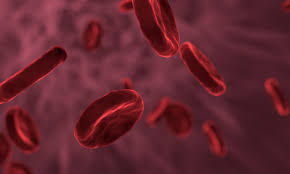
Breaking News
 Zone 00: Permaculture for the Inner Landscape (No Land Required)
Zone 00: Permaculture for the Inner Landscape (No Land Required)
 Sam Bankman-Fried files for new trial over FTX fraud charges
Sam Bankman-Fried files for new trial over FTX fraud charges
 Big Tariff Refunds Are Coming. How Much and How Soon?
Big Tariff Refunds Are Coming. How Much and How Soon?
Top Tech News
 New Spray-on Powder Instantly Seals Life-Threatening Wounds in Battle or During Disasters
New Spray-on Powder Instantly Seals Life-Threatening Wounds in Battle or During Disasters
 AI-enhanced stethoscope excels at listening to our hearts
AI-enhanced stethoscope excels at listening to our hearts
 Flame-treated sunscreen keeps the zinc but cuts the smeary white look
Flame-treated sunscreen keeps the zinc but cuts the smeary white look
 Display hub adds three more screens powered through single USB port
Display hub adds three more screens powered through single USB port
 We Finally Know How Fast The Tesla Semi Will Charge: Very, Very Fast
We Finally Know How Fast The Tesla Semi Will Charge: Very, Very Fast
 Drone-launching underwater drone hitches a ride on ship and sub hulls
Drone-launching underwater drone hitches a ride on ship and sub hulls
 Humanoid Robots Get "Brains" As Dual-Use Fears Mount
Humanoid Robots Get "Brains" As Dual-Use Fears Mount
 SpaceX Authorized to Increase High Speed Internet Download Speeds 5X Through 2026
SpaceX Authorized to Increase High Speed Internet Download Speeds 5X Through 2026
 Space AI is the Key to the Technological Singularity
Space AI is the Key to the Technological Singularity
 Velocitor X-1 eVTOL could be beating the traffic in just a year
Velocitor X-1 eVTOL could be beating the traffic in just a year
Scientists In Britain May Have Just "Accidentally" Found A Cure For Cancer

Researchers at Cardiff University that were in the midst of analyzing blood from a bank accidentally stumbled into an "entirely new type of T-cell", according to The Daily Wire. The new cell carries a "never before seen" type of receptor that acts like a grappling hook, latching on to most human cancers.
Prior therapies, called CAR-T and TCR-T, which use immune cells to attach to HLA molecules on cancer cells' surface, are incapable of fighting solid tumors, the article notes. HLA molecules vary in people, but the new therapy instead attaches to a molecule called MR1, which does not vary in humans. This gives the therapy a chance of fighting most cancers.
It also means people could share the treatment, which could allow banks of cells to be stored and offered quickly, as needed.
The treatment has already worked on lung, skin, blood, colon, breast, bone, prostate, ovarian, kidney and cervical cancer cells. The study stated:
Human leukocyte antigen (HLA)-independent, T cell-mediated targeting of cancer cells would allow immune destruction of malignancies in all individuals. Here, we use genome-wide CRISPR-Cas9 screening to establish that a T cell receptor recognized and killed most human cancer types via the monomorphic MHC class-I related protein, MR1, while remaining inert to noncancerous cells … These finding offer opportunities for HLA-independent, pan-cancer, pan-population immunotherapies.

 Iran & Epstein Fallout
Iran & Epstein Fallout


